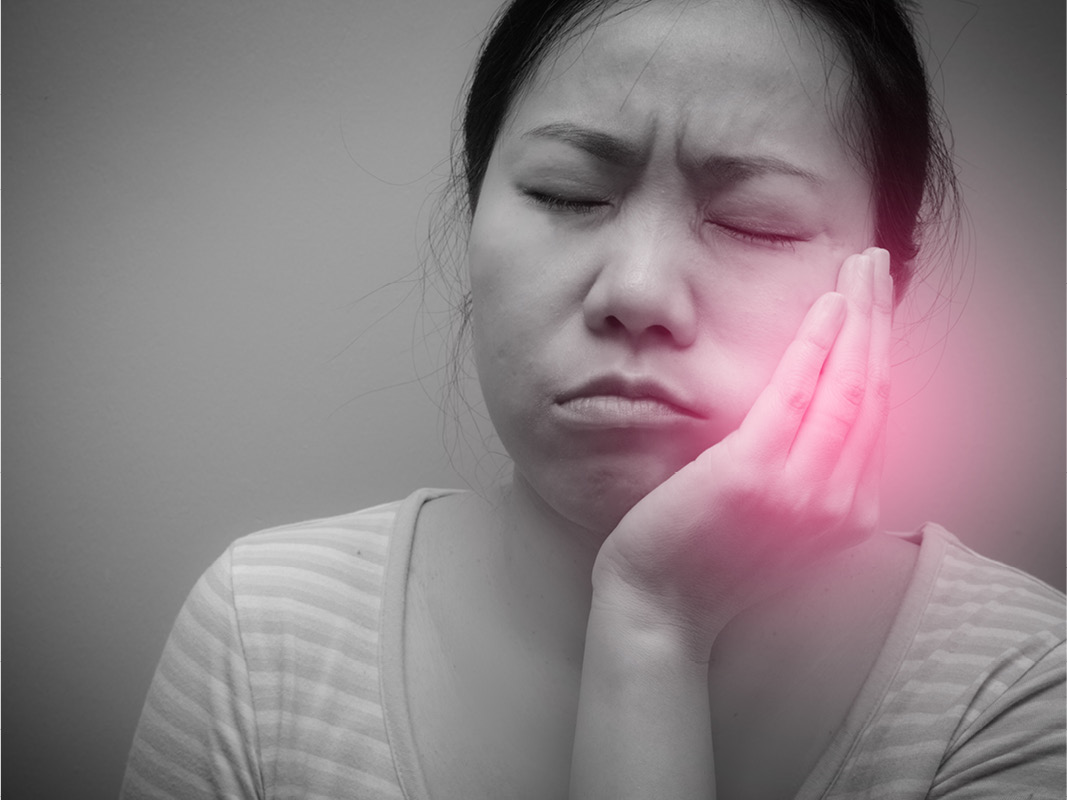If you suddenly experience pain in your jaw, you might be alarmed, but chances are it’s not serious. Sore muscles and sudden jaw pain can be the result of a dental issue or strain. But are these symptoms of TMJ disorders?
Temporomandibular joint (TMJ) disorders occur when there are one or more problems with the joint that connects your jaw to your skull. The shock-absorbing disk that aids the jaw movement can become worn or slip out of alignment, or the muscles supporting the TMJ could be strained by grinding and clenching of your teeth while you sleep, for example. Both can cause sore muscles and jaw pain in a chronic fashion rather than a sudden onset.
Symptoms of TMJ disorders can include:
- Jaw tenderness
- Pain when opening or closing the mouth
- Pain or difficulty chewing
- Joint locking when the mouth is in a closed or open position
- Earache
- Clicking or popping when the jaw moves
Issues and habits that can cause pain and may lead to a TMJ disorder include:
- Clenching or grinding teeth
- Nail, cheek or lip biting
- Teeth misalignment or damage
- Jaw infection or injury
- Cartilage or tissue damage
It is not easy to find the specific cause of TMJ disorders since multiple factors may be involved. If you are exhibiting symptoms, make an appointment with the physicians of Airway & Sleep Group to do an evaluation. They can evaluate the cause of your sore muscles and jaw pain, discover whether these are symptoms of TMJ, and prescribe remedies that can help.

